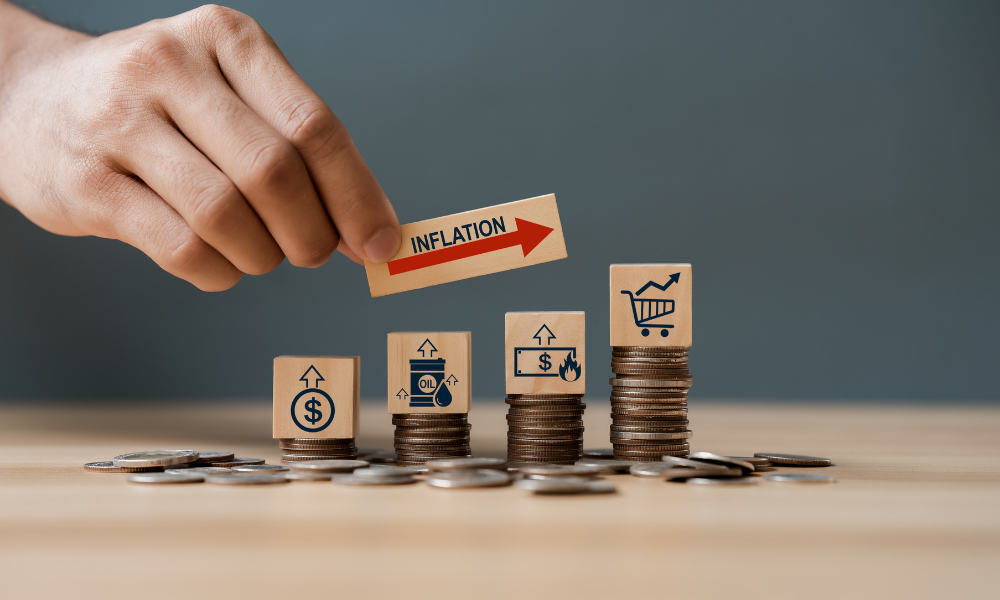Industry experts assess what today’s inflation figures mean for the Bank of England’s next move on interest rates

The UK’s annual inflation rate climbed to 3.6% in June, up from 3.4% in May, according to the latest figures from the Office for National Statistics (ONS).
The Consumer Prices Index (CPI) showed a 0.3% increase on a monthly basis, compared to a 0.1% rise in June last year.
Transport costs, particularly motor fuels, were the main factor behind the latest increase, while housing and household services helped offset some of the upward pressure. Core CPI, which excludes energy, food, alcohol, and tobacco, reached 3.7% over the year, up from 3.5% in May. The annual rate for goods rose to 2.4%, while services remained steady at 4.7%.
“Inflation ticked up in June driven mainly by motor fuel prices which fell only slightly, compared with a much larger decrease at this time last year,” said Richard Heys, ONS acting chief economist.
“Food price inflation has increased for the third consecutive month to its highest annual rate since February of last year. However, it remains well below the peak seen in early 2003.”
The Consumer Prices Index (CPI) rose by 3.6% in the 12 months to June 2025, up from 3.4% in the 12 months to May.
— Office for National Statistics (ONS) (@ONS) July 16, 2025
Read the full article ➡️ https://t.co/dtb7FWO7pw pic.twitter.com/3oIGRpKqCw
“Today’s rise in inflation will be a setback for those hoping to see interest rates come down this summer,” commented Richard Pike, chief sales and marketing officer at mortgage servicing provider Phoebus. “With the Bank of England’s 2% target slipping further out of reach, policymakers are likely to remain cautious.
“For the housing market, it means continued uncertainty. While the FCA’s recent decision to relax affordability requirements could encourage more activity among prospective buyers and those looking to remortgage, the real impact remains to be seen. Affordability pressures will persist for many borrowers on existing deals, particularly as fixed rate terms come to an end.”
Nathan Emerson, chief executive of industry body Propertymark, echoed Pike’s sentiments, saying “this news will provide no respite for people who are struggling with their personal finances.”
“Housing plays a pivotal role in the UK economy, and considering the UK government and the devolved administrations have set themselves ambitious housing targets, it’s important that there is strong affordability to support consumers with their housing ambitions,” he added.
For Paul Noble, chief executive of Chetwood Bank, the rise in inflation is “further bad news for the Chancellor following the surprise shrinking of the economy last month.”
“The best-laid plans of Number 11 still aren’t bearing fruit, and while I was relieved to see the U-turn on cutting the cash ISA tax free allowance, it’s not likely last night’s Mansion House speech will have lifted the public’s spirits. While there is no clear path to fix our predicament, the prospect of further pinching and hiking from the chancellor is making people up and down the country wince.”
According to Ben Thompson, deputy chief executive of Mortgage Advice Bureau, the uptick in inflation “is a reminder that the path back to target won’t be completely smooth and entirely predictable.”
“While the overall outlook into next year remains downward, persistent pressures — especially in services — may give the Bank of England reason to pause before moving on rates,” Thompson said.
Paresh Raja, chief executive of Market Financial Solutions, pointed out that with just over three weeks until the central bank’s next base rate decision, this morning’s inflation data “feels like it has added significance.”
“The headlines will likely be negative, and the focus from many will be on the fact that inflation is both rising slightly and still above the central bank’s 2% target, but that shouldn’t rule out a base rate cut on August 7,” he said. “The Bank of England's Governor, Andrew Bailey, recently commented that he would consider lowering the base rate if the labour market continues to soften.
“And yet, his accompanying caution about cutting rates while inflation remains above 2% continues to frustrate many in the property market. That target now feels like more than a guideline – it’s starting to carry disproportionate and potentially harmful weight.
Raja pointed out that the bank has cut rates while inflation was above target in the past, and he said this moment should be no different.
“Economic growth has stagnated for two consecutive months, so it feels like the right time to stop fixating on short-term CPI trends and start prioritising policies that support recovery,” he added. “In turn, by cutting the base rate, the bank would give property buyers and investors the confidence they need to resume their investment plans and encourage greater activity across the property market – and across the wider economy – in the final five months of the year.”
Want to be regularly updated with mortgage news and features? Get exclusive interviews, breaking news, and industry events in your inbox – subscribe to our FREE daily newsletter. You can also follow us on Facebook, X (formerly Twitter), and LinkedIn.



